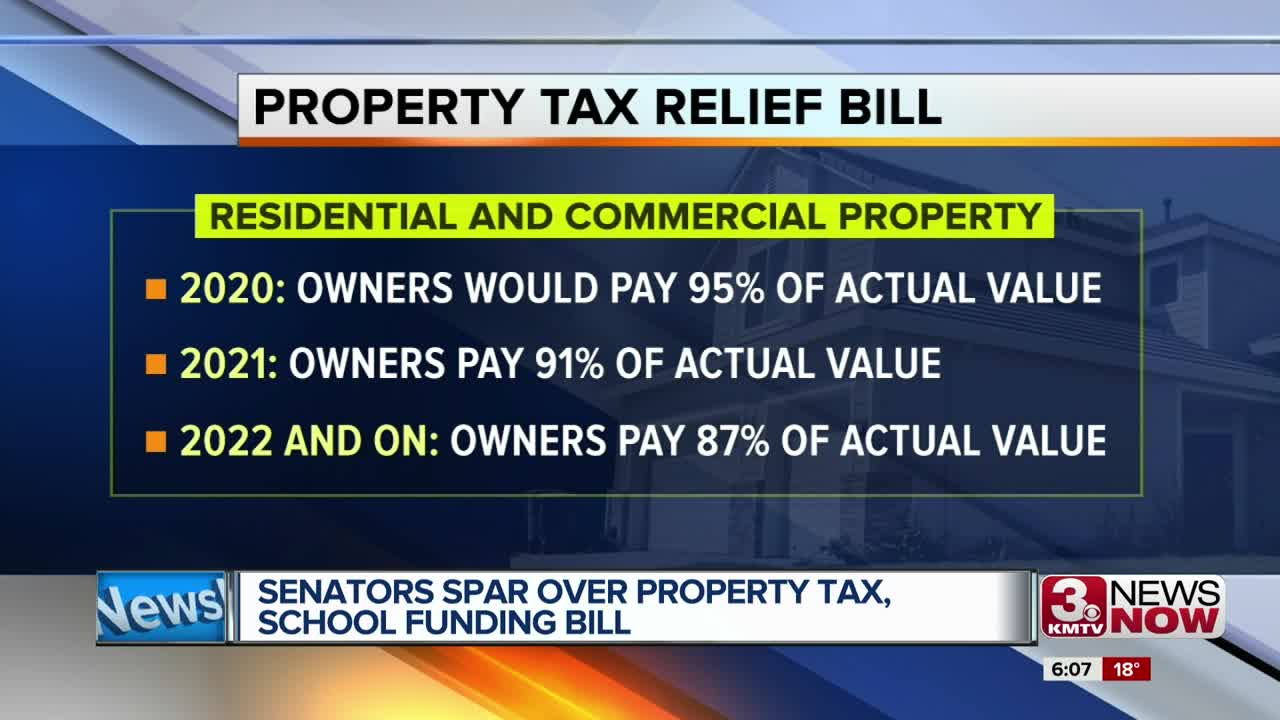LINCOLN, Neb. (KMTV) — Urban and rural Nebraskans could finally be seeing their property taxes go down as a bill continues to gain steam in the legislature.
But it’s a no go for some senators, who worry that some of the states largest school districts could lose money down the road.
“We can not break the back of agriculture in the state,” says Senator Lou Ann Linehan.
Year after year, senators pushing property tax bills have said how important it is to help our rural Nebraska, to no avail.
But now there’s optimism.
Unlike last year, this one doesn’t raise taxes, instead it ensures every school in the state gets some state funding, which doesn’t currently happen.
“In the past I have not been able to support any bills because they raised taxes on a few people,” says Senator John Lowe.”
“I can get behind this bill fully.”
The bill brings down property taxes on ag land by 20 percent by 2022, it brings residential and commercial property by 13 percent in the same time frame.
Sen. Lou Ann Linehan hopes that would let younger people buy a home and put down roots in Nebraska, which for some, can’t be done right now.
“When did owning a home become a luxury?” says Linehan.
To fund this, the plan would be to use around $520 million in projected revenue over a three-year period, but it would also only allow school boards to grow their budget only so much.
So many senators worried about the Omaha, Lincoln, Bellevue and Millard school districts, among others.
“You stand up here and talk about how you’re a pro-life state but children, what? Be damned?”
says Senator Machaela Cavanaugh of central Omaha.
To make up for this, these schools would get transition aid until the year 2023, to fill in the gaps until they properly budget.
But some still worry.
“I understand the three years of transition aid, but I don’t understand what happens after that,” says Senator Carol Blood of Bellevue.
Not one senator said the bill was perfect. Rural senator Curt Friesen said future Legislatures’ could always make tweaks.
“Down the road, in year five or six, if we have failed with this bill somehow, the legislature will look at it and make changes,” says Friesen.
But that was a laughable proposal for others.
“I’m sorry but I cannot legislate in the school of let’s throw spaghetti against the wall and see what sticks,” says Sen. Wendy DeBoer.
There’s about 30 minutes of debate left on this bill for Thursday, to get it to the next round they’ll need 25 votes.



